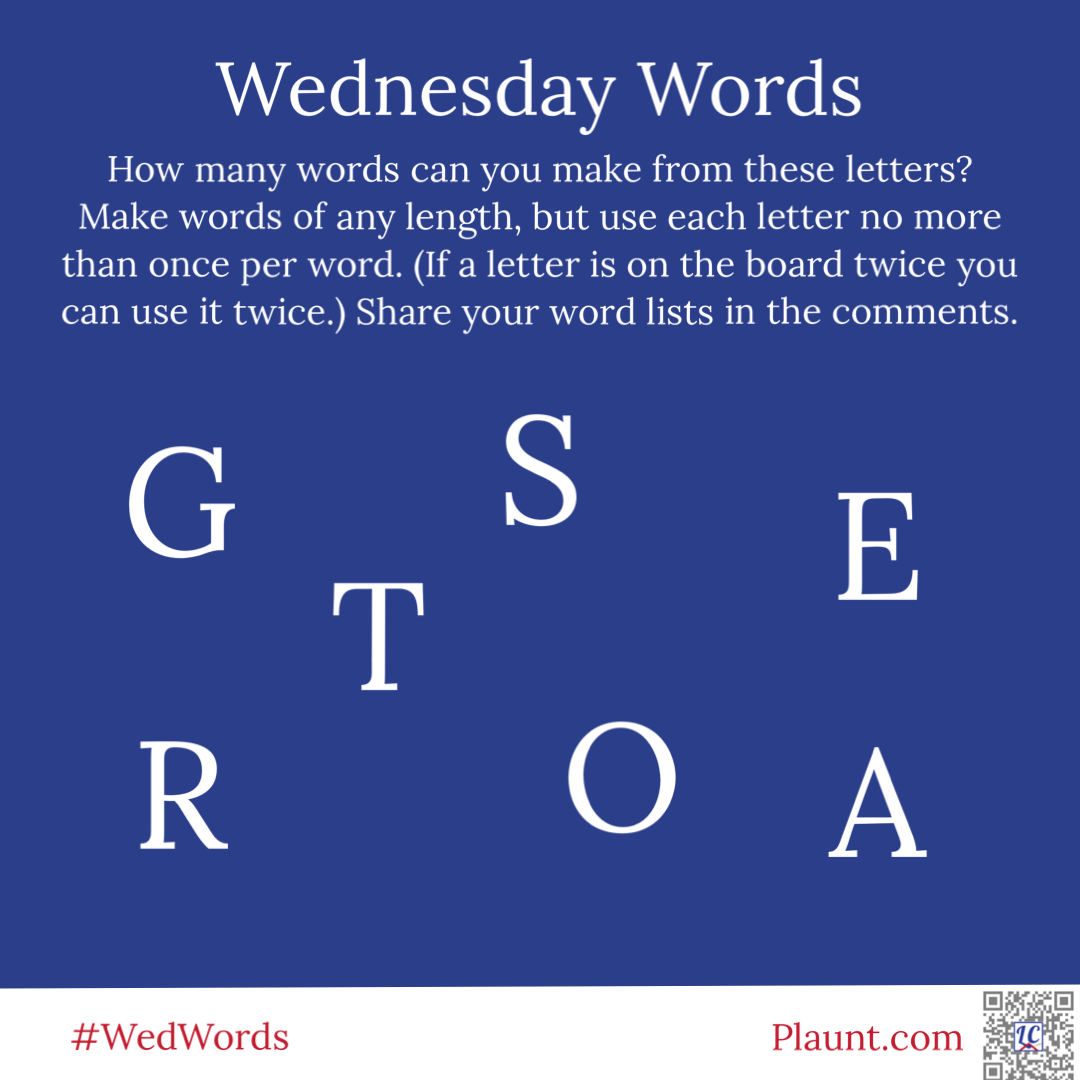How many words can you make from these letters? Make words of any length, but use each letter no more than once per word. (If a letter is on the board twice you can use it twice.) Share your word lists in the comments.
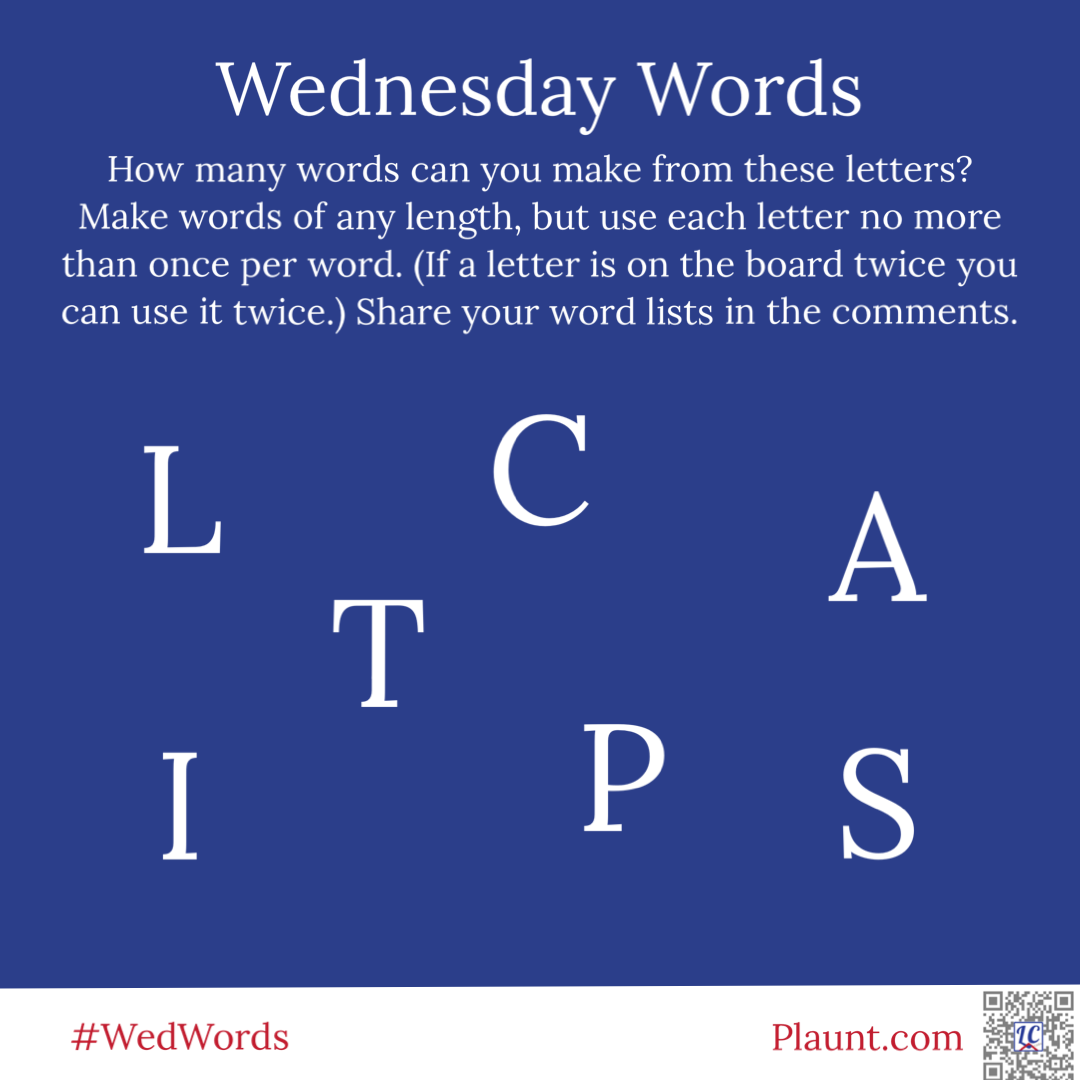
How many words can you make from these letters? Make words of any length, but use each letter no more than once per word. (If a letter is on the board twice you can use it twice.) Share your word lists in the comments.

How many words can you make from these letters? Make words of any length, but use each letter no more than once per word. (If a letter is on the board twice you can use it twice.) Share your word lists in the comments.
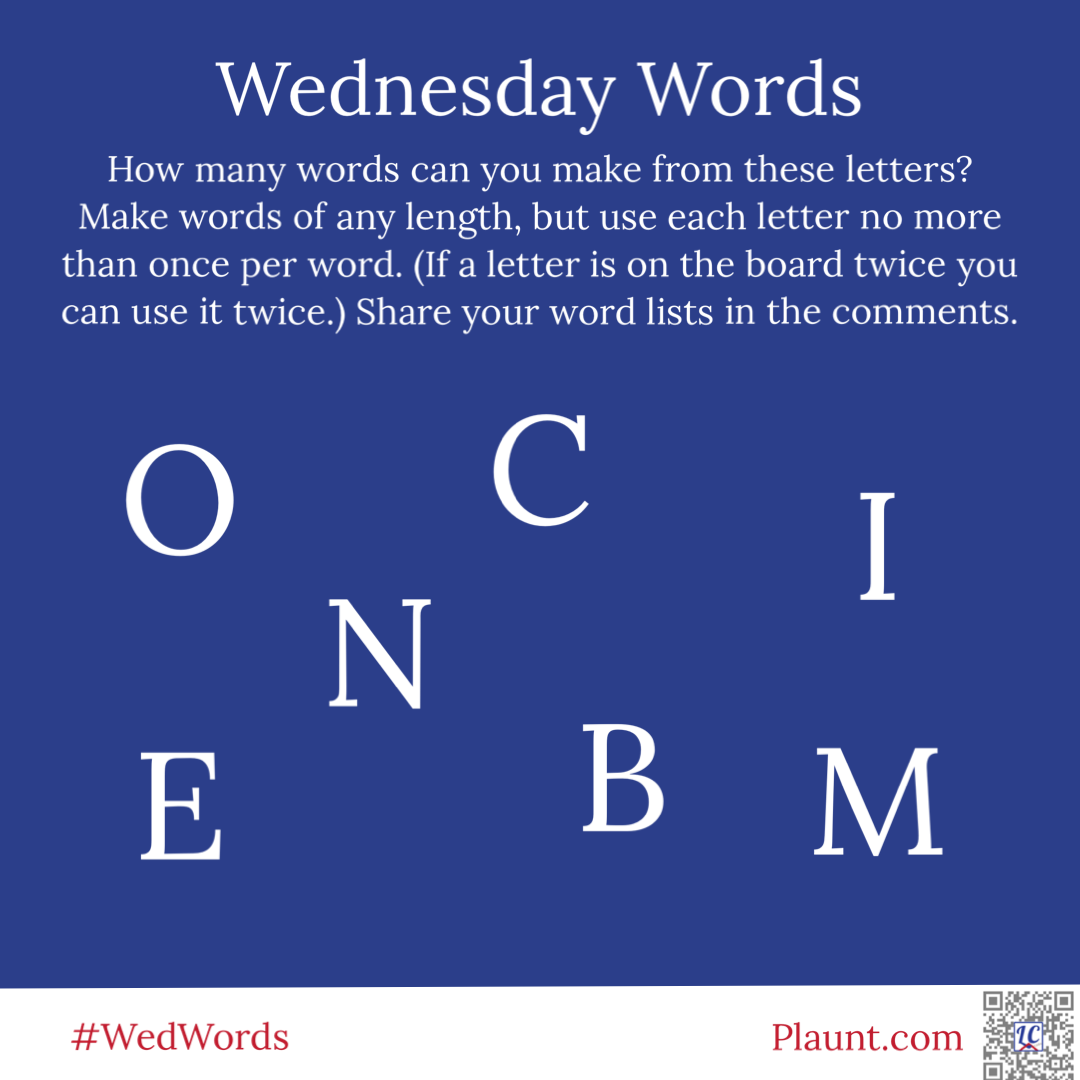
you’re: (subject pronoun + verb) contraction of you are
your: (possessive pronoun) shows that you own something;
it belongs to you
yore: (noun) a time long ago
The term yore is not commonly used anymore except in Christmas carols and some literary contexts. It is preceded by the preposition “of” and is used in expressions like days of yore or knights of yore.
How many words can you make from these letters? Make words of any length, but use each letter no more than once per word. (If a letter is on the board twice you can use it twice.) Share your word lists in the comments.
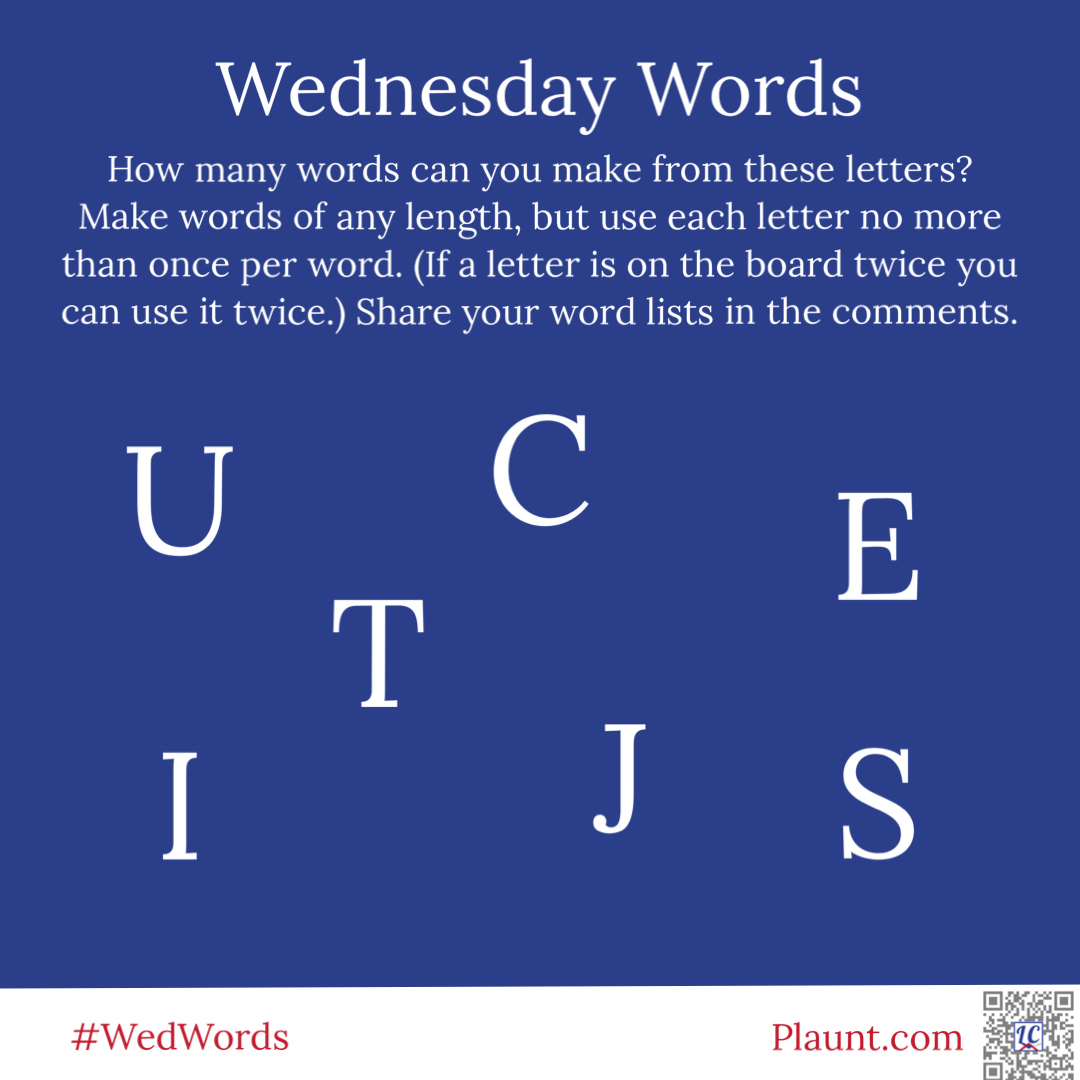
Some people like to put apostrophes into words where they aren’t necessary, but others don’t want to be bothered with the extra keystroke. If you leave the apostrophe out of I’ll, it will look sickly.
I’ll: (subject pronoun + verb) contraction of I will
ill: (adjective) unwell, sick;
(adverb) badly, hardly;
(noun) harm, misfortune
How many words can you make from these letters? Make words of any length, but use each letter no more than once per word. (If a letter is on the board twice you can use it twice.) Share your word lists in the comments.
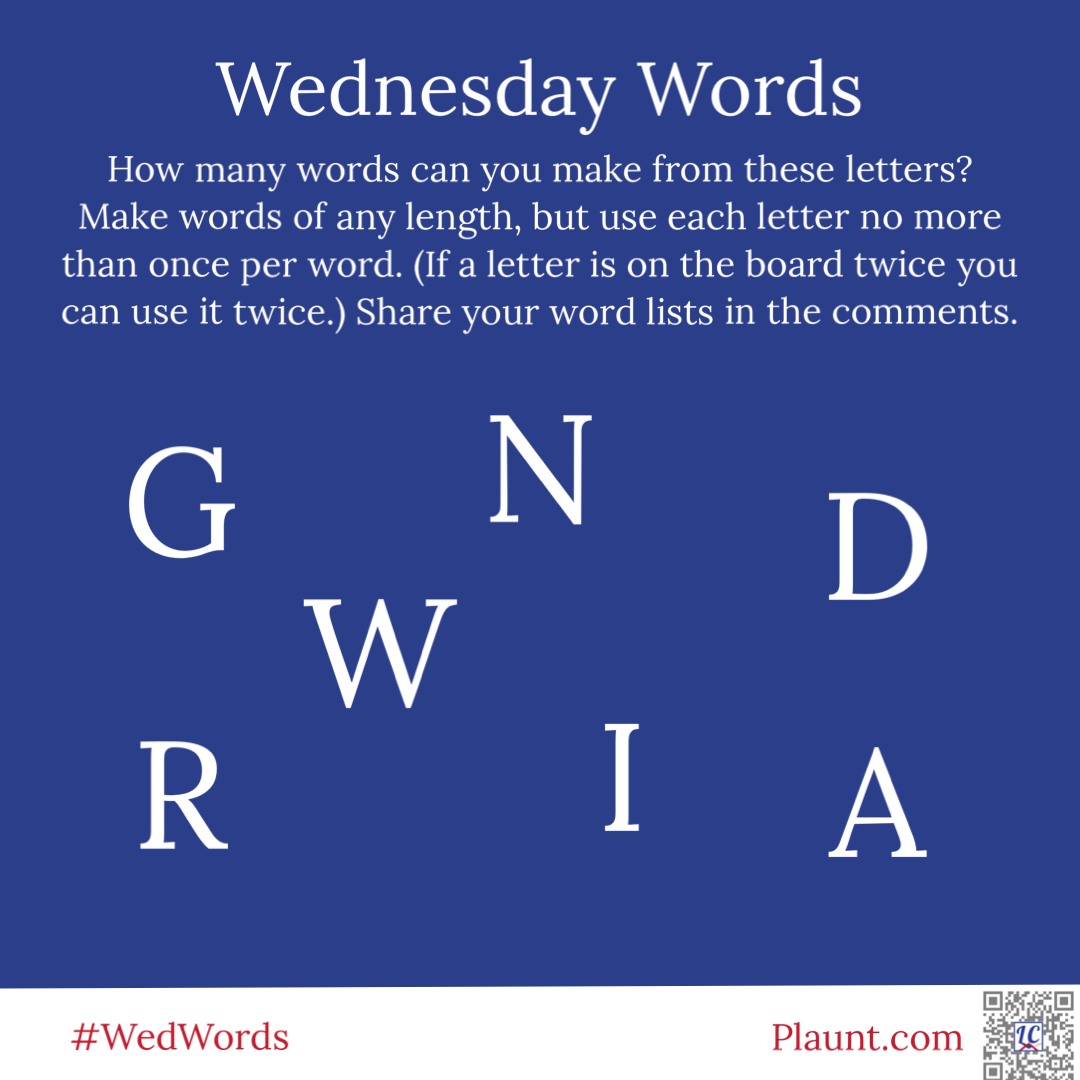
aisle: (noun) a passage between rows of seats or between shelves
isle: (noun) island
aile: (noun) French for wing
Unless you are talking about French birds or airplanes, you need an S in your word. If you are talking about the Emerald Isle (St. Patrick’s Day is coming), you do not need an A in isle.
How many words can you make from these letters? Make words of any length, but use each letter no more than once per word. (If a letter is on the board twice you can use it twice.) Share your word lists in the comments.
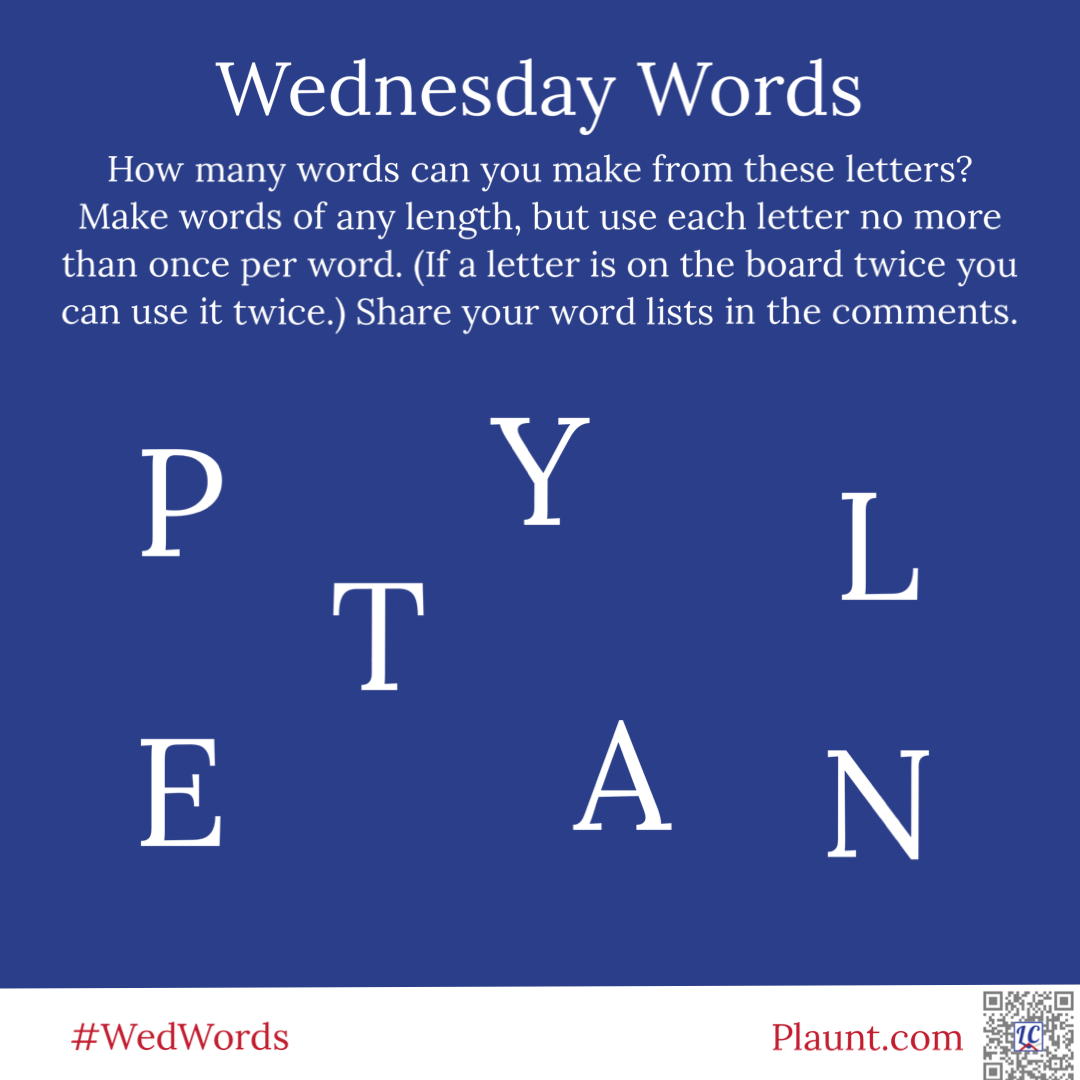
What will you do to celebrate?

How many words can you make from these letters? Make words of any length, but use each letter no more than once per word. (If a letter is on the board twice you can use it twice.) Share your word lists in the comments.
